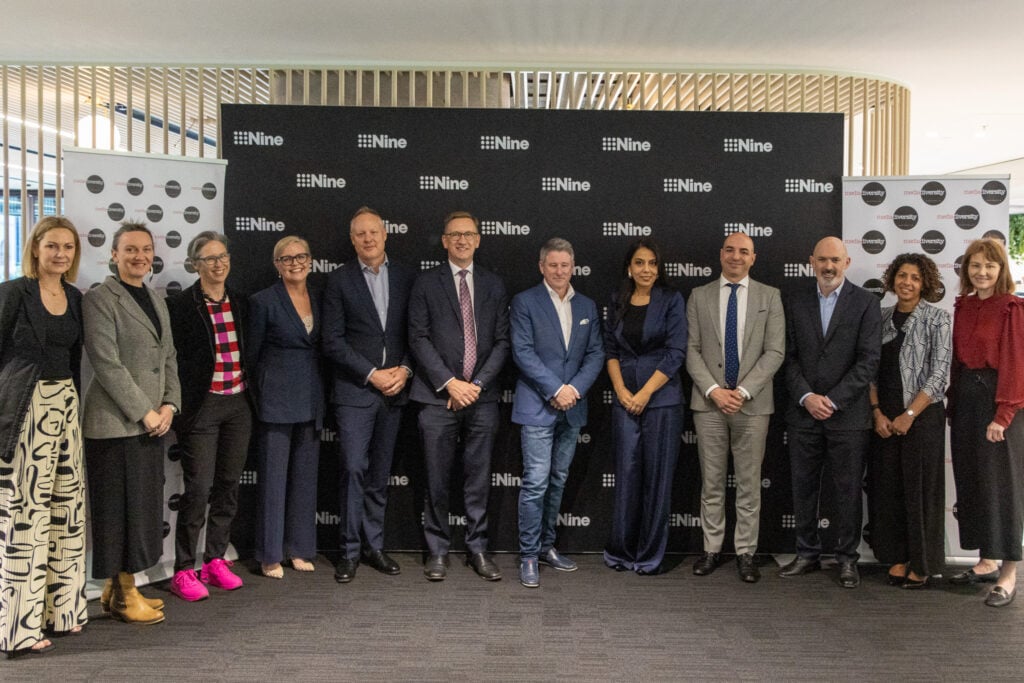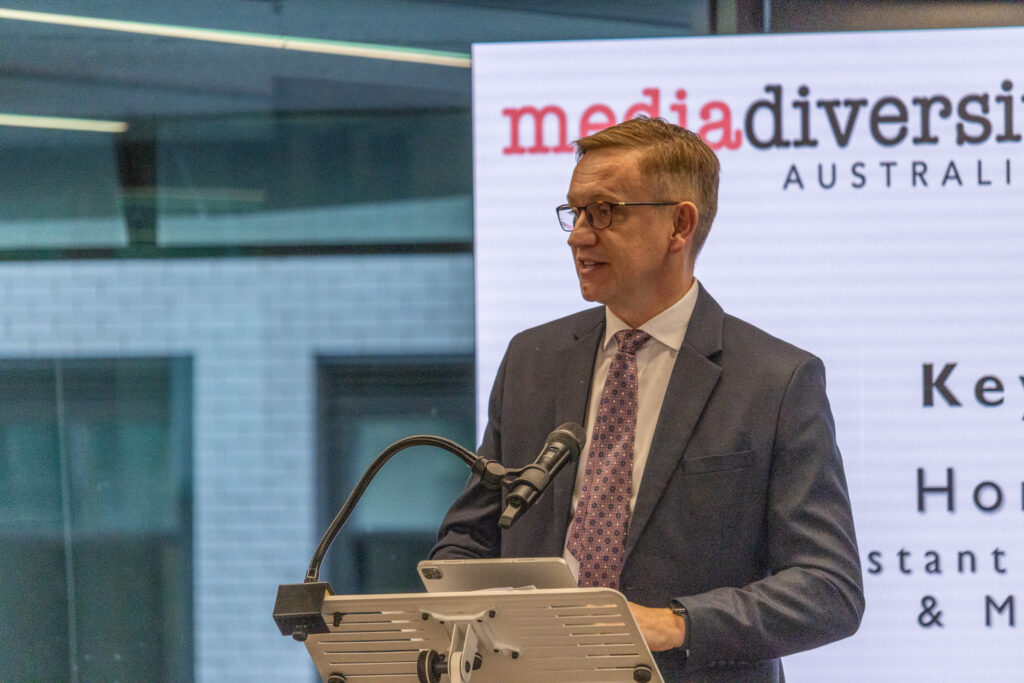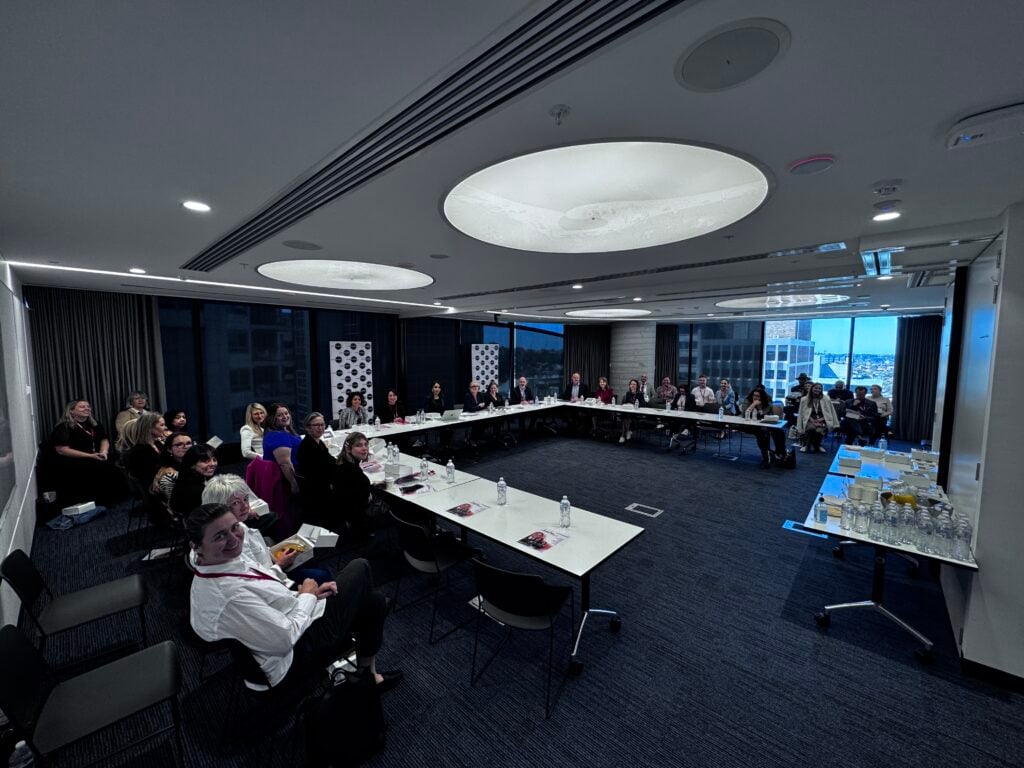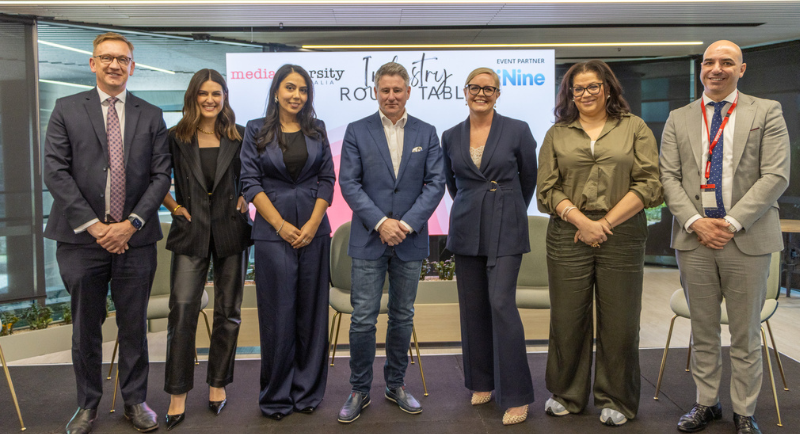Leaders from Australia’s media organisations gathered at Nine’s North Sydney headquarters on September 20 for the second Media Diversity Australia industry round table.
The event brought together the CEOs, managing directors, and senior representatives from MDA member organisations to continue discussions about a more sustained path to industry-wide improvement, as well as the challenges and opportunities facing the sector.
Assistant minister for citizenship and multicultural affairs The Hon Julian Hill MP was joined SBS’s James Taylor, Nine’s outgoing CEO Mike Sneesby and chief people officer Vanessa Morley, Seven’s chief people and culture officer Lucinda Gemmell, ABC’s chief people officer Deena Amorelli and AAP’s editor Andrew Drummond.
The Guardian’s deputy editor Gabrielle Jackson was also present alongside, Women’s Agenda publisher Angela Priestley, Junkee Media’s editor in chief Alice Griffin, ARE Media’s general counsel & DE&I lead Veronique Maury, Hachette Publishing’s CEO Louise Stark & Netflix’s Clare Walker, director business and legal affairs.

MDA’s members also include The Daily Aus, The Conversation Group and the National Indigenous Times whose representatives were unfortunately unable to attend in person.
The event included industry representatives from a range of organisations including representatives from Federal and State Government as well senior representatives from Google, Meta, Free TV, the Walkley Foundation, the Kennedy Foundation, Public Interest Journalism Institute PIJI, the AFL, Diversity Arts Australia, the National Ethnic and Multicultural Broadcasters’ Council, WGEA Workplace Gender Equality Agency, Women in Media, Women on Boards, the Australian Human Rights Commission, Deloitte, Telum Media and many more.
The first part of the event featured introductory remarks from Nine’s CEO Mike Sneesby and a keynote address by assistant minister Hill. He spoke about the “real concerns that diversity is still not adequately reflected in Australian mainstream media.”
“Your presence here today indicates that, like me, we think that needs to change,” he said. “What’s said and seen on screen, on air and in print, shapes cultural and societal norms and challenges biases and perceptions,” said Assistant Minister Hill in a subsequent statement on social media.”
This was followed by panel, moderated by Nine’s Sarah Abo featuring AFL DEI executive Tanya Hosch, Nine’s chief people officer Vanessa Morley and MDA’s CEO Mariam Veiszadeh.

Julian Hill MP
The second part of the event featured a closed round table discussion for MDA members and provided a platform for an honest and robust discussion around inclusion practices, talent pipeline, cultural safety, retention, navigating lived experience and impartiality, and opportunities for further industry collaboration.
Since the inaugural round table held at SBS in July 2023, there have been seven working group meetings held and an agreement from th of MDA’s largest employers to share their DEI Survey questions with a view to working towards adopting uniform metrics and language to enable a ‘comparing of apples with apples’.
The group has collaborated with MDA to develop a school program which MDA is currently seeking funding for. MDA Working group meetings will commence in the next quarter to keep building on the momentum for industry collaboration.
Mariam Veiszadeh, CEO of Media Diversity Australia said the event providesa launchpad for shifting the dial on industry-wide change.
“MDA has been described as a necessary agitator, an external independent body that can help bring the key media players together to help accelerate change in an industry that has faced its share fair of challenges. Our role at MDA is to ensure that when the media turns to us for diverse talent through our TalentHub offering, that we support those candidates not just to land a job but to have a thriving career, free from discrimination, ensuring that they feel culturally safe and that media companies are empowered with the tools to support their growth and upward career trajectory.
“While it’s vital for each media organisation to take individual action, achieving meaningful, lasting change requires collaboration and scaling up our efforts collectively. We must also engage in open and honest discussions about the obstacles our industry faces as we strive for genuine representation and, most importantly, inclusion.”

All MDA members (including those members not in attendance) have endorsed the following commitments:
1. Annual Round Table: MDA members will convene annually for a round table to maintain ongoing discussions, agree on actions, and track progress.
2. Working Group Representation: Each member organisation will nominate a representative to participate in MDA’s working group meetings, held at least four times a year, to actively advance the collective agenda.
3. Uniform Metrics for DEI: Members have agreed that MDA plays an important role in creating best practice DEI survey questions for its members to consider adopting within their organisations. In support of this, three of the largest broadcasters have confidentially shared their DEI demographic survey questions to help accelerate these efforts.
4. Supporting Future Talent: Members are committed in principle to supporting MDA’s Media Mavericks Schools Program to help build a diverse talent pipeline, pending external funding.
5. Focus on Cultural Safety and Retention: While recognising that progress has been made in individual DEI efforts, members acknowledged the challenges faced by the industry and the need for continued collaboration to sustain a diverse and inclusive workforce, with a focus on cultural safety and talent retention.
